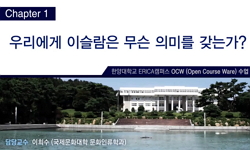This study is designed to analyze the religious tolerance and conflict of the Mughul empire. The Mughul Empire was founded in 1526 by Babur. In November 1525 Babur set out his historic march into India, and 1526 he reached the plain of Panipat on the ...
http://chineseinput.net/에서 pinyin(병음)방식으로 중국어를 변환할 수 있습니다.
변환된 중국어를 복사하여 사용하시면 됩니다.
- 中文 을 입력하시려면 zhongwen을 입력하시고 space를누르시면됩니다.
- 北京 을 입력하시려면 beijing을 입력하시고 space를 누르시면 됩니다.
https://www.riss.kr/link?id=A97762391
- 저자
- 발행기관
- 학술지명
- 권호사항
-
발행연도
2008
-
작성언어
-
- 주제어
-
KDC
200
-
등재정보
KCI등재
-
자료형태
학술저널
-
수록면
1-26(26쪽)
-
KCI 피인용횟수
0
- 제공처
-
0
상세조회 -
0
다운로드
부가정보
다국어 초록 (Multilingual Abstract)
This study is designed to analyze the religious tolerance and conflict of the Mughul empire. The Mughul Empire was founded in 1526 by Babur. In November 1525 Babur set out his historic march into India, and 1526 he reached the plain of Panipat on the northern part of Delhi. At present, the Muslim community in India is a minority group. Despite a small percentage of Indian population(11-12%), Muslims in India will remain as a public and people of India. However their public role as a body of Islamic doctrine, beliefs and rituals is bound to be restricted in India. India was fragmented from the time of Aryans` invasion. The fragmentation of India had continued till the beginning of 16th century. But this fragmentation came to an end with the rise of the Mughul empire. For the next two hundred years the Mughul Islamic power ruled the Hindu subcontinent. In order to analyze the Mughul`s religious policy, this study will present the process of spreading Islam into India, the religious conditions of the early Mughul Empire, Mughul`s Islamic tolerance with Hinduism, Awrangzeb`s anti Hinduism policy, and the decline of Mughul Empire. The history of spreading Islam into India is very important to understand the history of Islamic Da`wah in Asia, especially in Central Asia, China, and India. In conclusion, the comparison of religious policies between Akbar, Awrangzeb and Dara Shikoh is presented to understand the relationship between Islam and Hinduism in India. The Islamic tolerance of Akbar strengthened the relations with Hiduism, but the anti Hinduism policy of Awrangzeb threatened the Mughul`s destiny.
참고문헌 (Reference)
1 스탠리 월퍼트, "인디아 그 역사와 문화" 가람기획. 1990
2 이은구, "인도문화의 이해" 세창출판사. 1999
3 이광수, "인도문화" 부산외국어대학출판부. 2005
4 김영준, "이야기 인도사" 청아출판사. 2007
5 버나드 루이스, "이슬람문명사" 이론과 실천. 1994
6 김도영, "내가 만난 인도인" 산지니. 2006
7 Arnold,Thomas, "The Preaching of Islam" Reynold Nicholson. 1937
8 Sharma, S. R, "The Mughal Empire in India" Bombay 1940
9 Kissling,Hans J, "The Last Great Muslim Empires" Markus Wiener Publishers. 1996
10 Ikram, S. M, "Muslim Civilization in India" New York 1964
1 스탠리 월퍼트, "인디아 그 역사와 문화" 가람기획. 1990
2 이은구, "인도문화의 이해" 세창출판사. 1999
3 이광수, "인도문화" 부산외국어대학출판부. 2005
4 김영준, "이야기 인도사" 청아출판사. 2007
5 버나드 루이스, "이슬람문명사" 이론과 실천. 1994
6 김도영, "내가 만난 인도인" 산지니. 2006
7 Arnold,Thomas, "The Preaching of Islam" Reynold Nicholson. 1937
8 Sharma, S. R, "The Mughal Empire in India" Bombay 1940
9 Kissling,Hans J, "The Last Great Muslim Empires" Markus Wiener Publishers. 1996
10 Ikram, S. M, "Muslim Civilization in India" New York 1964
11 Ahmad, Aziz, "Islamic Modernazation in India and Pakistan" Oxford: Oxford University Press 1967
12 Esposito,John, "Islam in Asia" Oxford University Press. 1987
13 Hassan,Ibrahim, "Islam" The Times Printing & Publishing. 1967
14 Ahmed,Akbar S, "Discovering Islam" Routledge & Kegan Paul. 1988
15 Smith,Vincent A, "Akbar the Great Mogul" Oxford Univ.Press. 1917
동일학술지(권/호) 다른 논문
-
한국 사회내 터키인 무슬림 이주자의 현황 및 사회적 조직
- 한국이슬람학회
- 김대성 ( Dae Sung Kim )
- 2008
- KCI등재
-
한국 이주 중앙아시아 무슬림의 현황과 조직화 -우즈베키스탄, 카자흐스탄, 키르기스스탄, 투르크메니스탄, 아제르바이잔, 타지키스탄 출신 무슬림들을 중심으로-
- 한국이슬람학회
- 오종진 ( Chong Jin Oh )
- 2008
- KCI등재
-
한국이주 남아시아 무슬림의 현황과 집단화 -남아시아 무슬림의 에스닉 집단화에 관한 연구-
- 한국이슬람학회
- 김효정 ( Hyo Jung Kim )
- 2008
- KCI등재
-
1980년대 프랑스 국적법 논쟁을 통해서 본 무슬림 이민자 문제
- 한국이슬람학회
- 한명숙 ( Myung Sook Han )
- 2008
- KCI등재
분석정보
인용정보 인용지수 설명보기
학술지 이력
| 연월일 | 이력구분 | 이력상세 | 등재구분 |
|---|---|---|---|
| 2026 | 평가예정 | 재인증평가 신청대상 (재인증) | |
| 2020-01-01 | 평가 | 등재학술지 유지 (재인증) |  |
| 2017-01-01 | 평가 | 등재학술지 유지 (계속평가) |  |
| 2013-01-01 | 평가 | 등재 1차 FAIL (등재유지) |  |
| 2010-01-01 | 평가 | 등재학술지 유지 (등재유지) |  |
| 2007-01-01 | 평가 | 등재학술지 선정 (등재후보2차) |  |
| 2006-01-01 | 평가 | 등재후보 1차 PASS (등재후보1차) |  |
| 2005-10-14 | 학술지등록 | 한글명 : 한국이슬람학회논총외국어명 : 미등록 |  |
| 2004-01-01 | 평가 | 등재후보학술지 선정 (신규평가) |  |
학술지 인용정보
| 기준연도 | WOS-KCI 통합IF(2년) | KCIF(2년) | KCIF(3년) |
|---|---|---|---|
| 2016 | 0.57 | 0.57 | 0.52 |
| KCIF(4년) | KCIF(5년) | 중심성지수(3년) | 즉시성지수 |
| 0.41 | 0.36 | 1.151 | 0.19 |




 KCI
KCI KISS
KISS






